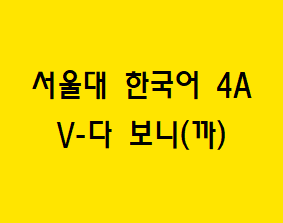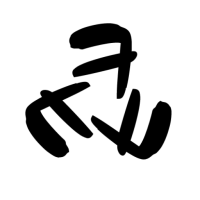You are looking for information, articles, knowledge about the topic nail salons open on sunday near me 다 보니까 grammar on Google, you do not find the information you need! Here are the best content compiled and compiled by the https://toplist.Experience-Porthcawl.com team, along with other related topics such as: 다 보니까 grammar 고 보니까 grammar, 다 보면 grammar, 아 보니까 grammar, 걸 보니까 grammar, 보니까 meaning, 듯이 grammar, 긴 하는데 grammar, 다 ending grammar
Table of Contents
[Ngữ pháp] Động từ + 다 보니, 다 보니까, 다가 보니까 –
- Article author: hanquoclythu.com
- Reviews from users: 27139
Ratings
- Top rated: 5.0
- Lowest rated: 1
- Summary of article content: Articles about [Ngữ pháp] Động từ + 다 보니, 다 보니까, 다가 보니까 – 나: 혼자 살다 보니 집 정리를 잘 안 하게 돼요. Sống một mình nên tôi (quen) không dọn dẹp nhà cửa. 가: 자야 씨는 양강 씨를 싫어하지 않았어요? …
- Most searched keywords: Whether you are looking for [Ngữ pháp] Động từ + 다 보니, 다 보니까, 다가 보니까 – 나: 혼자 살다 보니 집 정리를 잘 안 하게 돼요. Sống một mình nên tôi (quen) không dọn dẹp nhà cửa. 가: 자야 씨는 양강 씨를 싫어하지 않았어요?
- Table of Contents:
![[Ngữ pháp] Động từ + 다 보니, 다 보니까, 다가 보니까 -](https://hanquoclythu.com/wp-content/uploads/2019/03/다-보니-다-보니까-다가-보니까.jpeg)
V ~다 보니까 [ Korean Grammar ] | TOPIK GUIDE
- Article author: www.topikguide.com
- Reviews from users: 19538
Ratings
- Top rated: 4.1
- Lowest rated: 1
- Summary of article content: Articles about V ~다 보니까 [ Korean Grammar ] | TOPIK GUIDE Verb ~다 보니까: · 가다 – 가다 보니까 · 먹다 – 먹다 보니까 · 살다 – 살다 보니까 · 고백하다 – 고백하다 보니까 · 공부하다 – 공부하다 보니까 · 만들다 – … …
- Most searched keywords: Whether you are looking for V ~다 보니까 [ Korean Grammar ] | TOPIK GUIDE Verb ~다 보니까: · 가다 – 가다 보니까 · 먹다 – 먹다 보니까 · 살다 – 살다 보니까 · 고백하다 – 고백하다 보니까 · 공부하다 – 공부하다 보니까 · 만들다 – … Today we’ll be looking at the usage of “ V ~다 보니까 ” Korean grammar point with some examples.beginner korean,korean grammar,learn korean,topik grammar,topik i,topik ii,v ~다 보니까
- Table of Contents:
![V ~다 보니까 [ Korean Grammar ] | TOPIK GUIDE](https://i0.wp.com/wpsites.net/wp-content/uploads/2014/06/icon-after-more-link.png)
Lesson 122: ~다 보니(까)
- Article author: www.howtostudykorean.com
- Reviews from users: 49344
Ratings
- Top rated: 3.8
- Lowest rated: 1
- Summary of article content: Articles about Lesson 122: ~다 보니(까) In this lesson, you will learn another grammatical principle that … 다(가) 보니, through the use of ~다가 within the grammatical principle itself, … …
- Most searched keywords: Whether you are looking for Lesson 122: ~다 보니(까) In this lesson, you will learn another grammatical principle that … 다(가) 보니, through the use of ~다가 within the grammatical principle itself, …
- Table of Contents:

V-다 보니 grammar = while/after doing sth repeatedly, I realize/come to – Korean TOPIK | Study Korean Online | Học tiếng Hàn Online
- Article author: www.koreantopik.com
- Reviews from users: 45495
Ratings
- Top rated: 4.6
- Lowest rated: 1
- Summary of article content: Articles about
V-다 보니 grammar = while/after doing sth repeatedly, I realize/come to – Korean TOPIK | Study Korean Online | Học tiếng Hàn Online
Usage: – 다 보니 = -다가 (something occurs in a mdle of something) + -보니까 (refer to discovery or … … - Most searched keywords: Whether you are looking for
V-다 보니 grammar = while/after doing sth repeatedly, I realize/come to – Korean TOPIK | Study Korean Online | Học tiếng Hàn Online
Usage: – 다 보니 = -다가 (something occurs in a mdle of something) + -보니까 (refer to discovery or … Korea Topik, EPS Topik, KIIP program, Korean grammar, study Korean, learn korean culture - Table of Contents:
TOPIK 1 Preparation Pack
TOPIK 2 Preparation Pack
Popular Posts
Contributors
Pageviews past week
[Korean grammar] -다 보니 Expressing Discoveries and Results – Say Hi Korean
- Article author: sayhikorean.blogspot.com
- Reviews from users: 25215
Ratings
- Top rated: 3.9
- Lowest rated: 1
- Summary of article content: Articles about [Korean grammar] -다 보니 Expressing Discoveries and Results – Say Hi Korean 다 보니 Expressing Discoveries and Results , -다 보니 grammar, -다가 보니까, -다 보니까. …
- Most searched keywords: Whether you are looking for [Korean grammar] -다 보니 Expressing Discoveries and Results – Say Hi Korean 다 보니 Expressing Discoveries and Results , -다 보니 grammar, -다가 보니까, -다 보니까. -다 보니 Expressing Discoveries and Results , -다 보니 grammar, -다가 보니까, -다 보니까-다 보니 Expressing Discoveries and Results , -다 보니 grammar, -다가 보니까, -다 보니까 [Korean grammar] -다 보니 Expressing Discoveries and Results , Say Hi Korean: [Korean grammar] -다 보니 Expressing Discoveries and Results , Say Hi Korean
- Table of Contents:
search bar
Social Network
Popular post
Label
Recent Posts
DMCA Protected
Label
Popular post
![[Korean grammar] -다 보니 Expressing Discoveries and Results - Say Hi Korean](https://4.bp.blogspot.com/-eiIMwDjyIf4/W6t6UenOQeI/AAAAAAAABJQ/PjfYANFQgecD5h1AX6MVwYV0ISS5OzHKwCLcBGAs/w1200-h630-p-k-no-nu/61.1.jpg)
V-다 보니(까) Korean grammar
- Article author: studying-korean.tistory.com
- Reviews from users: 23286
Ratings
- Top rated: 4.2
- Lowest rated: 1
- Summary of article content: Articles about V-다 보니(까) Korean grammar V-다 보니(까) 동작을 반복하거나 지속한 결과로 뒤의 상황이 되었거나 그것을 깨닫게 되었음을 나타내는 표현이다. This expression is used to … …
- Most searched keywords: Whether you are looking for V-다 보니(까) Korean grammar V-다 보니(까) 동작을 반복하거나 지속한 결과로 뒤의 상황이 되었거나 그것을 깨닫게 되었음을 나타내는 표현이다. This expression is used to … V-다 보니(까) 동작을 반복하거나 지속한 결과로 뒤의 상황이 되었거나 그것을 깨닫게 되었음을 나타내는 표현이다. This expression is used to indicate that the situation has become or has been realized a..
- Table of Contents:
고정 헤더 영역
메뉴 레이어
검색 레이어
상세 컨텐츠
추가 정보
페이징
티스토리툴바

다가 보니까 – Funkorean4u.com
- Article author: funkorean4u.com
- Reviews from users: 38827
Ratings
- Top rated: 4.0
- Lowest rated: 1
- Summary of article content: Articles about 다가 보니까 – Funkorean4u.com 듣다 보면 이해하실 거예요. While you are listening, you will understand. Click here to listen to the audio files · [Grammar] … …
- Most searched keywords: Whether you are looking for 다가 보니까 – Funkorean4u.com 듣다 보면 이해하실 거예요. While you are listening, you will understand. Click here to listen to the audio files · [Grammar] … Posts about 다가 보니까 written by funkorean4u
- Table of Contents:
Click here to listen to the audio files

Cách hiểu nhanh ngữ pháp 다 보니
- Article author: blogkimchi.com
- Reviews from users: 34219
Ratings
- Top rated: 4.5
- Lowest rated: 1
- Summary of article content: Articles about Cách hiểu nhanh ngữ pháp 다 보니 Ý nghĩa cấu trúc ngữ pháp 다 보니: Người nói biết được, hay nhận ra một việc gì đó do thực hiện hành động hay làm việc gì đó liên tục mà hình thành nên cái kết … …
- Most searched keywords: Whether you are looking for Cách hiểu nhanh ngữ pháp 다 보니 Ý nghĩa cấu trúc ngữ pháp 다 보니: Người nói biết được, hay nhận ra một việc gì đó do thực hiện hành động hay làm việc gì đó liên tục mà hình thành nên cái kết … Học hiểu nhanh ngữ pháp 다 보니 với Blogkimchi, chúng ta tiếp đến bài số bao nhiêu trong loạt ngữ pháp tiếng Hàn thông dụng rồi nhỉ :3 quên từ đầu không đánh
- Table of Contents:
Làm đề thi TOPIK II 쓰기 Câu 53 (Chủ đề 직업 선택의 기준)
Làm đề thi TOPIK II 쓰기 Câu 53 (결혼 문화)
Làm đề thi TOPIK II 쓰기 Câu 53 (저출산)
Làm đề thi TOPIK II 쓰기 Câu 53 (스마트폰 이용)
[Tài liệu] File sách luyện Viết TOPIK II – 쓰기2 Tài liệu học từ vựng trung cấp tổng hợp từ đề thi Topik cũ
[Note] Một số link luyện nghe tiếng Hàn(Link mp3 không phải youtube)Danh sách các tài liệu chọn lọc cho ôn Topik II
Bài tập 쓰기 TOPIK II Câu 51 – 52 (현대 사회의 문제)
Bài tập 쓰기 TOPIK II Câu 51 – 52 (광고)
Bài tập 쓰기 TOPIK II Câu 51 – 52 (건강)
Bài tập 쓰기 TOPIK II Câu 51 – 52 (자기소개)

-다(가) 보니(까), and then – A Different Take on Korean Grammar
- Article author: koreangrammardifferently.com
- Reviews from users: 18808
Ratings
- Top rated: 4.7
- Lowest rated: 1
- Summary of article content: Articles about -다(가) 보니(까), and then – A Different Take on Korean Grammar 다(가) conveys the same meaning as the 다가 grammar and here the 가 is usually dropped but the meaning stays the same. In the case of a verb it … …
- Most searched keywords: Whether you are looking for -다(가) 보니(까), and then – A Different Take on Korean Grammar 다(가) conveys the same meaning as the 다가 grammar and here the 가 is usually dropped but the meaning stays the same. In the case of a verb it … I wrote an entry about (으)니까 that will be very helpful before reading this. It is my opinion that once you learn (으)니까, understanding this grammar becomes much easier. I’ll cover the theory of the grammar in the first section and then go through some sample sentences in the second section. Theory: The pattern can…
- Table of Contents:

See more articles in the same category here: Top 74 tips update new.
V ~다 보니까 [ Korean Grammar ]
Today we’ll be looking at the usage of ” V ~다 보니까 ” Korean grammar point with some examples. Usage:
This expression is used to express the state of the speaker performing a continuous action which is mentioned in the preceding statement and comes to a realisation in the following statement. It is used when the action is repeatedly taking place and new information or state of affairs occurs in the following statement resulting from the preceding action.
The basic conjugation rule is :
Verb ~다 보니까: 가다 – 가다 보니까 먹다 – 먹다 보니까 살다 – 살다 보니까 고백하다 – 고백하다 보니까 공부하다 – 공부하다 보니까 만들다 – 만들다 보니까 Lets see some example sentences :
1. I missed the scent of coffee because I couldn’t go to a cafe these days. 요즘 카페에 못 가다 보니까 커피 향기가 몹시 그리웠다. Here the speaker couldn’t go to a cafe for a prolonged period of time and the action is being continued which resulted him missing the scent of coffee.
2. I gained a lot of weight because I kept eating hamburgers. 햄버거를 계속 먹다 보니까 살이 많이 쪘어요 In the above sentence the speaker is continuing the action of eating burgers which resulted in gaining a lot of weight.
3. As I keep eating, everything happens. 먹고살다 보니까 별 일이 다 일어나네요
4. After confessing only with red roses for hundreds of years, it seems not fun and somewhat cliche. 수백 년간 오직 빨간 장미로만 고백하다 보니까 재미가 없고 다소 진부해 보이기도 한다.
5. As I studied, it became 12 o’clock. 제가 공부하다 보니까 12시가 되었어요.
6. I learn a lot from making furniture with my friends. 가구를 친구들과 직접만들다 보니까 많은 것을 배웁니다
The difference between 고 보니까 and 다 보니까 V ~고 보니까 : It is used when the speaker has done something in the past and realises the repercussions in the following sentence. Eg : Since I ate a lot during vacation, I gained a lot of weight. 방학 때 많이 먹고 보니까 살이 많이 쪘어.
V ~다 보니까 : It is used when the speaker is continuing the action mentioned in the preceding statement and realises the repercussions in the following sentence. Eg : I gained a lot of weight because I kept eating hamburgers. 햄버거를 계속 먹다 보니까 살이 많이 쪘어요.
Lesson 122: ~다 보니(까)
Jump to:
Vocabulary
Introduction
While doing something, one realizes: ~다 보니(까)
Vocabulary
Nouns:
제국 = empire
가족사 = family history
화분 = flowerpot
싹 = sprout of a plant/blossom of behavior
치매 = dementia/Alzheimer’s disease
속보 = breaking news
가로등 = streetlight
서열 = rank
장미 = rose
평등권 = equal rights
Verbs:
논쟁하다 = to argue about
밀치다 = to push, to thrust
물러서다 = to back up
싹트다 = to blossom/spring up
너무하다 = to go too far
복종하다 = to obey
매기다 = to rank/set something (price, etc)
거두다 = to harvest/collect/gather/gain
소홀하다 = to neglect
저항하다 = to resist
Adjectives:
세다 = for the power of something to be strong
천하다 = to have a low status in life
사악하다 = to be evil/wicked/vicious
평등하다 = to be equal
누렇다 = to be golden yellow
Adverbs and Other Words:
방울 = counter for “drops” (like water)
Introduction
In this lesson, you will learn another grammatical principle that requires the addition of “보다” between two clauses. Specifically, you will learn how to use ~다 보니 to connect two clauses. Let’s get started.
.
While doing something, one realizes: ~다 보니(까)
In the previous lesson, you learned how to connect two clauses with ~다(가) 보면. This was used to express that if one does something for a continuous/repeated amount of time, something will happen. ~다(가) 보니(까) is often shortened to ~다 보니. It is used to indicate that – while (in the midst of) doing an action, one realizes something. Let’s look at how this meaning is created.
This is essentially the sum of two grammatical principles with the word “보다” to see/look. First, as you learned in Lesson 88, ~다(가) is used to indicate that – while one does something another action occurred. For example:
눈길을 걷다가 넘어졌어요 = While I was walking on the snowy road, I fell
After ~다(가), we place “보니”, which is an addition of ~(으)니(까) (Lesson 81) and the word “보다” to mean “now that I look.” The sum of everything together has a meaning similar to “while one does an action, and then looks/reflects on what is happening…”. The following clause is typically a realization that occurred due to the looking/reflecting that occurred.
We wouldn’t be able to add “보니” to the example above because that wouldn’t make sense. For example:
눈길을 걷다가 보니 넘어졌어요… while I was walking… I realized that I fell? Grammatically that might make sense, but the sentence is ridiculous. Remember that this grammatical principle expresses that one realized something while doing another action. How can you realize that you have fallen?
Instead, let’s look at an example that would be appropriate. Usually the most simple example you could make with ~다 보니 would be something like this:
제가 공부하다 보니 12시가 되었어요
As I said, the meaning in this sentence is not simply “While I studied, it became 12 o’clock.” Rather, the specific use of “보니” indicates that the person is/became aware of what was going on, and the second clause is an expression of what the person became aware of. A simple translation of the sentence above would be:
제가 공부하다 보니 12시가 되었어요 = While I was studying, it became 12:00
A more complicated translation that more accurately expresses the nuances of ~다 보니 would be:
제가 공부하다 보니 12시가 되었어요 = While I was studying, (and then looked at/reflected one what was happening) I realized that it had become 12:00
In this form, the end of the Korean sentence doesn’t need to explicitly indicate that one “realized” something. This meaning is implied within the grammatical principle itself. However, it is quite common to see the final clause of the sentence conjugated using the ~게 되다 grammatical principle, which you learned about in Lesson 94. This essentially adds the nuance that the result in the second clause occurred without the speaker being aware of it happening (because he/she was too focused on the action in the first clause).
You need to be careful with what type of clause you use before ~다 보다. For example, this sentence wouldn’t make sense:
학교에 가다 보니까 책을 안 가져왔어요
Here, the action that became “realized” (책을 안 가져오다) was something that occurred in the past – before the process in the first clause began. In order to use ~다 보니, the action that is being realized has to occur simultaneously with the realization – not that one realized something prior to the another action happening. For example, in this sentence:
운동하다 보니까 팔이 아팠어요 = While I was exercising, I realized that my arm was sore
This clause expresses that the person was exercising, and while exercising, he/she realizes that his/her arm was sore. This realization occurred as a result of the first action, and therefore is acceptable.
Let’s look at some simple examples:
친구들이랑 얘기하다 보니 시간이 엄청 빨리 지나갔어요 = While talking with my friends, I realized that time had gone by very quickly
그녀랑 사귀다 보니 그녀가 더욱 좋아졌어요 = While going out with her, (I realized/noticed that) she has become better and better
The actions that you’re doing don’t necessarily need to be currently happening in order for you to use this grammatical principle. As you will see in the examples below, it is possible to use ~다 보니 with a situation that you do many times. In effect, the action is directly happening, the lifestyle of you “doing something regularly” is still happening.
햄버거를 계속 먹다 보니 살이 많이 쪘어요 =While/after eating hamburgers continually (over a period of time), I realized that I gained a lot of weight
운동을 자주 하다 보니 몸이 건강해졌어요 =While/after exercising often, I realized that I got/became healthy
And now let’s look at some more complicated examples:
똑같은 내용의 방송을 보다 보니 저도 모르게 세뇌 당하게 되었어요 = While watching the same broadcast (over and over), I realized that, without my knowledge, I had become brainwashed
댓글을 읽다 보니 세상에는 정말 다양한 사람들이 있다는 것을 깨닫게 되었어요 = While reading the comments, I came to realize that there is really a wide variety of people in the world
In the next lesson, you will learn a grammatical principle that looks/sounds similar to ~다 보니 both in structure and in meaning. I don’t want you to get confused. ~다(가) 보니, through the use of ~다가 within the grammatical principle itself, implies that the realization occurs while one is still doing the first action. I don’t want to introduce the grammar of the next lesson in this lesson, but keep that in mind when you read Lesson 123.
That’s it for this lesson!
Click here to go to the next lesson!
V-다 보니 grammar = while/after doing sth repeatedly, I realize/come to
L2.55 V-다 보니 grammar = while/after doing sth repeatedly, I realize/come to
Usage:
– 다 보니 = -다가 (something occurs in a middle of something) + -보니까 (refer to discovery or result) = while doing sth or after doing sth repeatedly, I realize that…
– If an adjective or noun comes before -다 보니, it indicates the cause of the event = because … (example 10,11)
Verb + -다 보니:
가다 — 가다 보니 (while going…, I realize that…)
먹다 — 먹다 보니 (while eating…, I realize that…)
살다 — 살다 보니 (while living…, I realize that…)
읽다 — 읽다 보니 (after reading…, I realize that…)
일하다 — 일하다 보니 (while working…, I realize that…)
운전하다 — 운전하다 보니 (after driving…, I realize that…)
Examples:
1. 집이 엉망이구나.
– 혼자 살다 보니 집 정리를 잘 안 하게 돼요.
This house is a mess.
– While living alone, I can’t clean up often.
2. 민아 씨는 앤디 씨를 싫어하지 않았어요?
– 처음엔 싫어했는데 매일 같이 일하다 보니 앤디 씨의 좋은 점이 보이더라고요.
Mina, don’t you dislike Andy?
– I didn’t like him at first, but after working with him together everyday, I have come to see his good points.
3. 자꾸 먹다 보니 이젠 매운 음식도 잘 먹게 되었어요.
After eating frequently, I am able to eat spicy food well now.
4. 일하다 보니 어느새 오후 7시가 넘었더라고요.
While I keep working, I just realize that it was over 7pm.
5. 축구뉴스를 매일 읽다가 보니까 자연스럽게 축구을 좋아해졌어요.
After reading football news everyday, I naturally came to like football.
6. 예전에는 커피를 잘 못 마시지 않아요?
– 네, 하지만 졸릴 때마다 커피를 마시다 보니 이제는 습관이 됐어요.
Didn’t you drink coffee previously?
– Yes, but I drink coffee whenever I feel sleepy, it became my habit now.
7. 길을 정말 잘 찾네요.
– 매일 운전하다 보니 길을 잘 찾게 됐어요.
You find the way really well.
– After driving everyday, I came to find the way well.
8. 한잔하다 보니 취했어요.
While drinking I became drunk.
9. 열심히 공부하다 보니 날이 어두워졌어요.
It got dark while I was studying hard.
10. 그 일이 워낙 중요하다 보니 혼자 결정할 수 없었어요.
Because that work is very important issue, I couldn’t decide by myself.
11. 대통령은 한 나라의 대표이다 보니 경호하는 사람들이 많을 수밖에 없어요.
Because a president is the representative of a country, it is unavoidable that he will be guarded by a lot of people.
Comparison between V-고 보니 grammar and V-다 보니 grammar
– Use after an action is completed
– Refer to a time after performing an action once
– Express unexpected information after finishing an action
그 사람을 만나고 보니 괜찮은 사람 같았어요.
After meeting her, she seemed to be a so so person.
2. V-다 보니 grammar
– Use while the action is still taking place
– Refer to a time during the process of performing an action repeatedly.
– Express new information or state of affairs resulting from the preceding action
그 사람을 만나다 보니 사랑하게 되었어요.
So you have finished reading the 다 보니까 grammar topic article, if you find this article useful, please share it. Thank you very much. See more: 고 보니까 grammar, 다 보면 grammar, 아 보니까 grammar, 걸 보니까 grammar, 보니까 meaning, 듯이 grammar, 긴 하는데 grammar, 다 ending grammar

